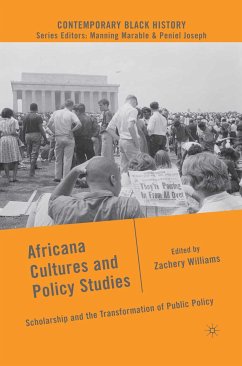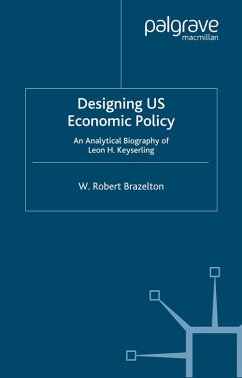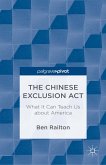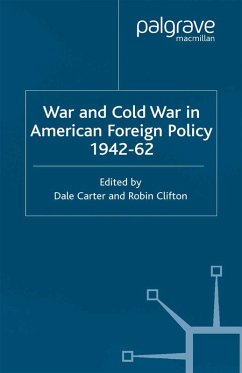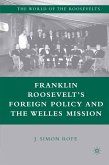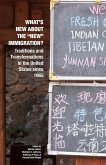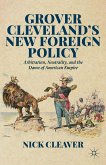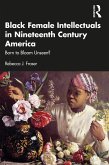Dieser Download kann aus rechtlichen Gründen nur mit Rechnungsadresse in A, B, BG, CY, CZ, D, DK, EW, E, FIN, F, GR, HR, H, IRL, I, LT, L, LR, M, NL, PL, P, R, S, SLO, SK ausgeliefert werden.
"This insightful book provides a paradigm for effectively making and implementing policy to improve the quality of life among disadvantaged Africana peoples. It inspires discourse across disciplines - intersecting studies in Africana history, culture and policy - and among community leaders, historians and policymakers." - Lillian Ashcraft-Eason, Professor of History, Bowling Green State University
"This collection provides a profoundly important contribution to the fields of Africana Studies, history, and public policy because it challenges scholars and activists to consider the ways in which historical and interdisciplinary research can contribute to broader discussions about race, culture, and the development of domestic and international policy.While most historical studies tend to avoid issuesof policy and practical application, these essays boldly apply scholarly inquiry and historical research to public policy and offer important insights about how scholarly analysis can create meaningful transformation in the Black community and throughout the world." - Leslie M. Alexander, Associate Professor of History, The Ohio State University
"This a much needed and excellent attempt to incorporate the intersection of culture and structure in the development of social policy as it relates to Africana peoples in Africa and throughout the diaspora. It is an approach that can help us better understand why certain social policies are ineffective for 'marginalized' peoples. It is a must read for anyone interested in the intersection between Africana Studies, Political Science, Sociology, Social Policy, and the unity of theory and practice." - Dr. Terry Kershaw, Professor and Head, Department of African and African American Studies,University of Cincinnati, andEditor ofthe International Journal of Africana Studies
"This book offers innovative and broadly conceived intellectual work with practical application beyond the academy. From the challenges faced in our cities to foreign policy, this work represents a well delineated theory that offers fresh ideas on the practical uses of Africana scholarship. It is an outward-looking and analytically thorough exploration of the utility of scholarship and its role in social application." - Jeffrey O.G. Ogbar, Director,Institute for African American Studies and Associate Professor of History, University of Connecticut

